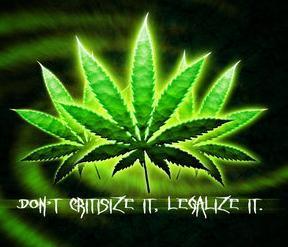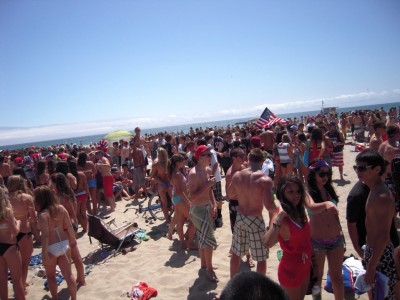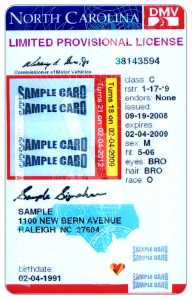Commercial Driver’s License
Saturday, February 22nd, 2014
A Commercial Driver’s License (CDL) is a special driver’s license for those wishing to drive larger vehicles. Every driver is required to hold a CDL to legally operate any vehicle that meets
one or more of these conditions:
– has a gross vehicle weight rating or combination GVWR greater than 26,000 pounds;
– is designed to transport 16 or more passengers, including the driver; and/or
– is transporting a hazardous material or cargo that requires placards.
Possession of a CDL is considered a privilege for drivers and it requires those drivers to abide by other rules in addition to the normal traffic regulations. These include certain violations committed in a Commercial Motor Vehicle (CMV) and those committed in their personal vehicle. Violations to these rules can generally cause a suspension or revocation of your CDL privileges.
A major driving violation that will significantly effect your CDL is Driving While Impaired and other alcohol related offenses
Driving While Impaired (DWI): For commercial drivers in North Carolina, it is illegal to operate any commercial vehicle while under the influence of an impairing substance or with blood-alcohol concentration of .04 percent or higher. DWI is a criminal offense resulting
in a loss of driving privileges for one year following the first conviction and lifetime driver license revocation upon the second conviction, plus court fees (N.C. General Statute 138.1).
NCGS 20-138.2. Impaired driving in commercial vehicle:
(a) Offense — A person commits the offense of impaired driving in a commercial motor vehicle if he drives a commercial motor vehicle upon any highway, any street, or any public vehicular area within the state:
(1) While under the influence of an impairing substance; or
(2) After having consumed sufficient alcohol that he has, at any relevant time after the driving, an alcohol concentration of 0.04 or more. The results of a chemical analysis shall be deemed sufficient evidence to prove a person’s alcohol concentration; or
(3) With any amount of a Schedule I controlled substance, as listed in NCGS 90-89, or its metabolites in the driver’s blood or urine.
Some others include:
- Driving While Impaired (BAC of 0.06) in a Commercial Motor Vehicle
- Driving While Impaired (BAC of 0.04 or 0.05) in a CMV
- Leaving the scene of an accident involving a CMV you were driving
- Using a CMV to commit a felony
- Vehicular manslaughter offense occurring while operating a CMV
- Driving a CMV during a period your CDL was revoked, suspended, cancelled, or disqualified
A second conviction of any of these offenses will result in a lifetime suspension of your CDL and if any of these offenses occur while you are driving a CMV that is placarded for hazardous materials, your CDL will be disqualified for a minimum of three (3) year.
If you use a CMV to commit a felony involving controlled substances your CDL will be disqualified for life.
A person can also be suspended from driving a CMV for 60 days if you are convicted of two “serious traffic violations” within a three-year period and for no less than 120 days if convicted of three or more serious traffic violations. Some examples of serious traffic violations are:
- Excessive speeding (15mph or more above posted speed limit)
- Reckless driving
- Following too close
- Erratic lane changes
- Traffic offenses committed in a CMV in connection with fatal traffic accidents
- Driving a CMV without obtaining a CDL
- Driving a CMV without having your CDL in your possession
These traffic violations also carry a heavier point system when dealing with a CDL. For example, if a person with a regular license is convicted of Reckless Driving then they will receive 4 DMV points, however if a person with a CDL is convicted of Reckless Driving then they will receive 5 DMV points.
Another important fact to note is that if you carry a CDL and you are charged with a serious violation in your own personal vehicle (non-CMV), it still may affect your CDL if convicted. So, if you or someone you know has been charged with a violation while possessing a CDL, or was charged while driving a CMV, then please call Collins Law Firm at 910-793-9000 for a confidential consultation.
By Rachel R. Reynolds


 On August 12, 2013, United States Attorney General Eric Holder announced to the American Bar Association’s House of Delegates in San Francisco, an initiative to curb mandatory minimum drug sentences that the nation is “coldly efficient in jailing criminals,” but it “cannot prosecute or incarcerate” into becoming a safer country. “Too many Americans go to too many prisons for far too long, and for no truly good law enforcement reason,” Holder said . The arguments about legalization of drugs in the US include health and social problems, potential tax revenue, and public safety concerns. However, this speech by our Attorney General focused on alleviating an overburdened prison system housing non-violent people convicted and sentenced to very long prison terms for peaceful drug crimes. Regarding the debate over legalization, the nation has moved from the question of “if” to the more tangible question of “how,” said Beau Kilmer, co-director of the RAND Drug Policy Research Center and co-author of “Marijuana Legalization: What Everyone Needs to Know.”
On August 12, 2013, United States Attorney General Eric Holder announced to the American Bar Association’s House of Delegates in San Francisco, an initiative to curb mandatory minimum drug sentences that the nation is “coldly efficient in jailing criminals,” but it “cannot prosecute or incarcerate” into becoming a safer country. “Too many Americans go to too many prisons for far too long, and for no truly good law enforcement reason,” Holder said . The arguments about legalization of drugs in the US include health and social problems, potential tax revenue, and public safety concerns. However, this speech by our Attorney General focused on alleviating an overburdened prison system housing non-violent people convicted and sentenced to very long prison terms for peaceful drug crimes. Regarding the debate over legalization, the nation has moved from the question of “if” to the more tangible question of “how,” said Beau Kilmer, co-director of the RAND Drug Policy Research Center and co-author of “Marijuana Legalization: What Everyone Needs to Know.”

 The Wilmington Star News – the primary printed news publication in New Hanover County North Carolina reported on recent efforts by law enforcement to promote adherence to the state’s underage drinking laws.
The Wilmington Star News – the primary printed news publication in New Hanover County North Carolina reported on recent efforts by law enforcement to promote adherence to the state’s underage drinking laws.
 Employees who are laid off, or terminated through no fault of their own may qualify for unemployment compensation. Unemployment benefits are administered by the Employment Security Commission (ESC). To receive unemployment benefits, a former employee must file a claim with the ESC, and meet eligibility requirements. To be eligible for benefits, you must be unemployed through no fault of your own, be able and available for work and be actively seeking work. You may be disqualified from receiving benefits if you were discharged from work due to work “misconduct,” such as use of alcohol or drugs, fighting, unauthorized absences without good cause or theft of company property. You may also be disqualified if you are terminated for a reason that does not constitute misconduct, but is considered a “substantial fault.” Substantial fault includes acts, over which you have reasonable control, that violate reasonable job requirements.
Employees who are laid off, or terminated through no fault of their own may qualify for unemployment compensation. Unemployment benefits are administered by the Employment Security Commission (ESC). To receive unemployment benefits, a former employee must file a claim with the ESC, and meet eligibility requirements. To be eligible for benefits, you must be unemployed through no fault of your own, be able and available for work and be actively seeking work. You may be disqualified from receiving benefits if you were discharged from work due to work “misconduct,” such as use of alcohol or drugs, fighting, unauthorized absences without good cause or theft of company property. You may also be disqualified if you are terminated for a reason that does not constitute misconduct, but is considered a “substantial fault.” Substantial fault includes acts, over which you have reasonable control, that violate reasonable job requirements. For students, the summer is over and school is starting again. Many students will be starting college for the first time and it will be in a new environment with many challenges and temptations.
For students, the summer is over and school is starting again. Many students will be starting college for the first time and it will be in a new environment with many challenges and temptations.